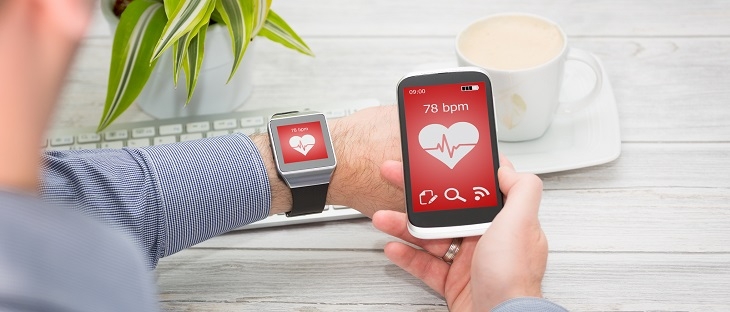Ads
In an increasingly technology-focused world, a revolution focused on health and wellness is emerging: wearables. These portable devices are marking a turning point in how we monitor, care for, and improve our health.
The growing interest in healthy living has found the perfect ally in wearables. From measuring our daily steps to monitoring heart rate and sleep quality, these small technological marvels are helping millions of people lead healthier lifestyles.
Ads
In the following text, we'll explore how these devices are boosting our well-being and the best options available on the market. We'll delve into their features, benefits, and how they can fit into our daily routines to help us achieve our health and wellness goals.
If you're looking for a technological companion to help you take care of your health and well-being, this text will provide you with all the information you need to understand the world of wearables. Get ready to discover how this technological revolution can transform your life.
Ads
Understanding Wearables
Wearables, or wearable technology, are electronic devices that are incorporated into clothing or worn directly on the body. These devices, which are often synced with a mobile app, collect and analyze data to help users achieve specific goals, such as improving well-being and health.
Types of Wearables
There are several types of wearables, each with its own capabilities and applications in the field of health and wellness:
- Smartwatches: These devices, such as the Apple Watch or the Samsung Galaxy Watch, can track physical activity, monitor heart rate, and even perform electrocardiograms.
- Fitness bracelets: With a more specific focus on fitness tracking, these devices can track steps, distance traveled, calories burned, and sleep patterns.
- Smart glasses: These glasses can project real-time information into the user's field of vision, which can be useful for workouts and other physical activities.
- Smart clothing: By incorporating technology directly into the fabric, smart clothing can monitor bodily functions such as temperature, heart rate, and posture.
Health Benefits of Wearables
Wearables can play a pivotal role in personal healthcare. These devices' ability to collect and analyze data in real time offers a number of benefits.

Continuous Monitoring
With wearables, users can constantly monitor various aspects of their health, such as physical activity, heart rate, blood pressure, blood glucose levels, and more. This can help detect any abnormalities or changes in health early, enabling early intervention.
Promotion of Healthy Lifestyles
Wearables can motivate users to lead healthier lifestyles. By providing detailed and up-to-date information about their physical activity, these devices can encourage people to move more, sleep better, and improve their diet.
Challenges and Considerations
Despite the numerous benefits, there are also important challenges and considerations regarding wearables.
Data Privacy
Given the amount of personal data that wearables can collect, data privacy is a legitimate concern. It is critical that manufacturers of these devices implement robust security and encryption measures to protect user information.
Furthermore, transparency in data use is key to building trust among users. Companies must provide clear policies on how personal data is collected, stored, and shared. Many wearables collect sensitive information, such as heart rate, sleep patterns, and physical activity, which could be exploited if it falls into the wrong hands.
Compliance with regulations like the GDPR in Europe and the CCPA in California helps ensure that data is handled ethically and securely. However, users also have an important role to play in protecting their privacy, such as by properly configuring device permissions and updating software regularly.
Another concern is the risk of cyberattacks, as wearables are connected to the internet and can be vulnerable to unauthorized access. The use of multi-factor authentication and secure networks can reduce these risks. Data privacy on wearables should be a priority for businesses and consumers.
Data Accuracy
The accuracy of data collected by wearables may vary depending on the device and measurement type. Therefore, while these devices can be useful for gaining an overview of health and well-being, they should not be used as a substitute for professional medical evaluations.
In short, wearables represent a technological revolution in personal healthcare, offering numerous wellness benefits. However, it is essential to keep privacy and accuracy considerations in mind, and to use these devices as a complementary tool, rather than a substitute for professional medical care.
Conclusion
In conclusion, wearables are a true technological revolution that promises to enhance our well-being and take care of our health. They allow for continuous monitoring of various aspects of our health, from physical activity to blood glucose levels. At the same time, they promote healthier lifestyles, encouraging us to move more, sleep better, and improve our diet.
However, there are also important challenges and considerations to keep in mind. Data privacy is a legitimate concern, as these devices collect a vast amount of personal information. Therefore, it is essential that manufacturers implement robust security measures to protect user information.
Furthermore, the accuracy of data collected by wearables may vary. While they are useful for gaining an overview of our health and well-being, they should not be used as a substitute for professional medical evaluations.
Ultimately, wearables are a complementary tool in personal healthcare. They provide significant benefits, but they should not replace professional medical care. Thus, in this era of ever-evolving technology, wearables are leading the way toward a healthier and more conscious future.



